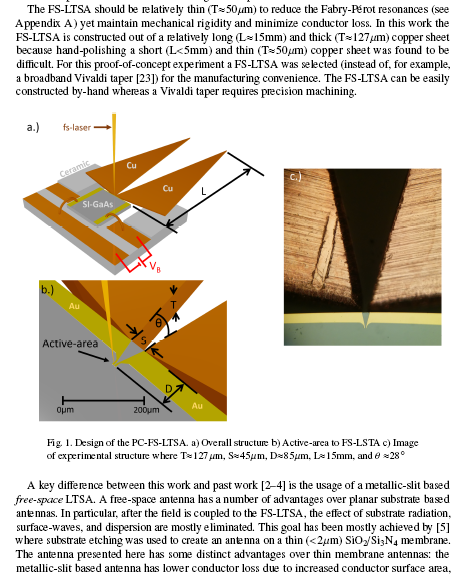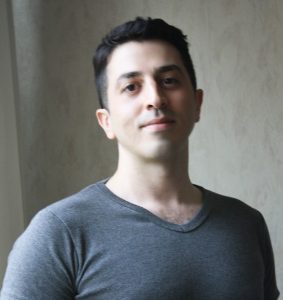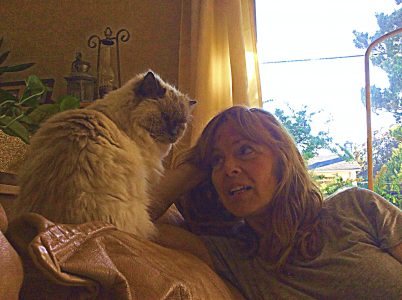By Madeline Walker and Nancy Ami
The quotation in our title from popular writer James Michener stresses the importance of revising and editing your own writing. Indeed, knowing how to revise and edit is just as important as being able to generate a first draft. Here we describe two ways you can revise and edit your work with intention.
Using readability statistics to plan revisions, by Madeline
A simple, free tool can help you analyze your own writing with an eye to revision. Microsoft Word is the most popular word processing software available, yet few people know about the Readability Statistics feature. This feature analyzes your writing and provides counts, averages, the percentage of sentences in passive voice, and two readability measures. You can use this information to plan improvements to your writing. For example, the average academic sentence contains 23 words (in Business it’s 15-20), but what if you see from the statistics that your average sentence is 35 words? Now is the time to read Nancy’s contribution below and edit for concision. What if you see that 50% of your sentences are in the passive voice, but your discipline prefers active voice? You can revise accordingly. The two readability measures show the grade level of writing (Flesch-Kincaid Grade Level Test) and the level of difficulty (Flesch Reading Ease Test) with 100% the easiest to read and 0-29 confusing prose. You can use this measure to revise with an eye to clarity and accessibility.
- To get started right away in Word for PC, go to file/ options/ proofing. Under “When correcting spelling and grammar in Word,” select the “Check grammar with spelling check box” and select “Show readability statistics.” After writing your document, go to review/ spelling and grammar, and when the check is complete, a text box will appear on your screen on top of your document.
- In Word for Mac, go to Word/ preferences/ spelling and grammar and check “Show readability statistics.” After finishing your document, go to review/ spelling and grammar, and when the check is complete, a text box will appear on your screen on top of your document.
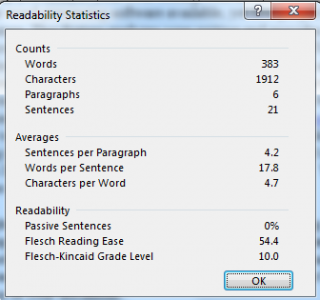
Just for fun, here are the statistics for part one of this blog post. Click here to learn more about Readability Statistics and how to interpret them. Then you can revise and edit with intention.
Concision, by Nancy
After noting my essays overflowed with phrases like “future plans for one’s life ahead” and “the discussion of the characters in the novel that was assigned,” my undergraduate communication professor suggested I read The Elements of Style. I bought it and read it. I understood why my course instructor made notes like “awk” and “redundant” and “?” in my essay margins. I learned how I could write differently. Concisely.
Over the years, since putting aside The Elements of Style, I’ve noticed that my writing has returned to its former state. Puffy. Expansive. Obscure. What happened to concision?
Desperate to review tips I learned more than thirty years ago, I thumbed through my yellow-paged $2.95-ticketed third edition and found scribbled asterisks next to principles like 14: “Put statements in positive form” and 17: “Omit needless words”. Would the advice I followed in my undergraduate degree help me thin my padded writing now?
I applied Strunk and White’s principles to my sentence scrawls:
- Avoid “not”
In spite of the fact that writing is difficult for some, it is not difficult for others.
In spite of the fact that While writing is difficult for some, it is not difficult easy for others.
I replaced “not difficult” with “easy” and saved a word!
- Trim the fat
Perfectionists are people who struggle with writing.
Perfectionists are people who struggle with writing.
I eliminated “are people who” and saved three words!
My colleague writes in an effective manner.
My colleague writes in an effective manner effectively.
I used an adverb to replace a phrase and saved four words!
Writing is an activity that is difficult for some.
Writing is an activity that is difficult for some.
I excised “an activity that is” and saved four words!
I need to call your attention to the fact that writing is difficult.
I need to call your attention to the fact that Writing is difficult!
I replaced the idea of “need” with a “!” and saved 10 words!
- Replace clauses with phrases and phrases with words
Writing that is done by scholars can be complex and incomprehensible.
Writing that is done by scholars can be complex and incomprehensible.
Scholarly writing that is done by scholars can be complex and incomprehensible.
Complex scholarly writing that is done by scholars can be complex and in comprehensible.
I reduced a negative eleven-word sentence to a positive simple statement of six words!
Comprehensible writing results from applying only two of the simplest of Strunk and White’s twenty writing principles. True in 1985. True today. Check it out!
In addition to employing these techniques, remember that you are always welcome to work with a tutor at the Centre for Academic Communication to improve your revision and editing skills.
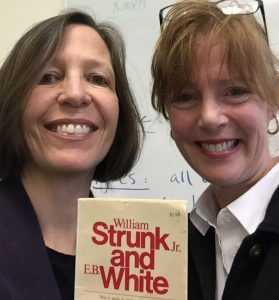
Nancy Ami (R) is the Manager and Madeline Walker (L) is the Coordinator of the Centre for Academic Communication. That’s Nancy’s dog-eared copy of The Elements of Style, 3rd edition. The fourth edition is available in the Reference section of our library: PE1408 S772 2000
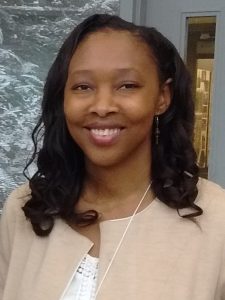
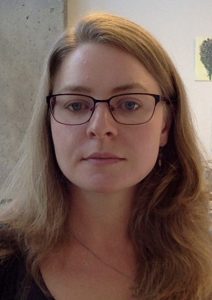
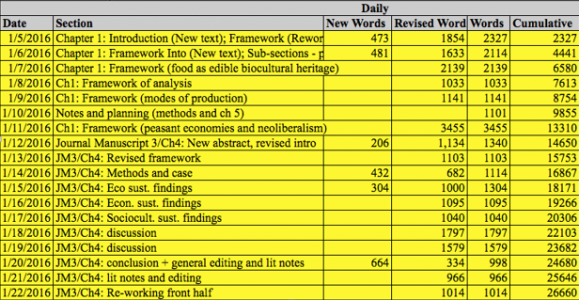
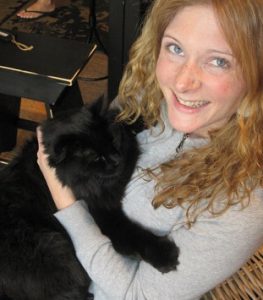
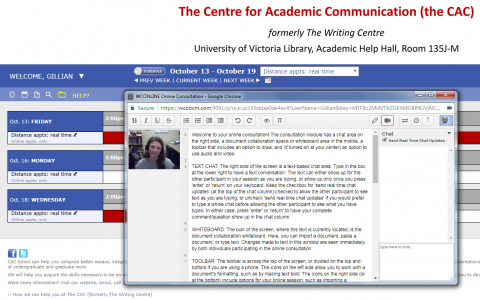
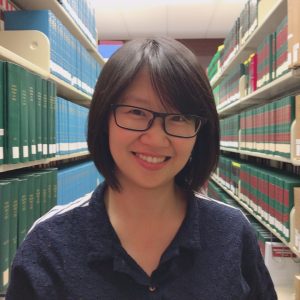
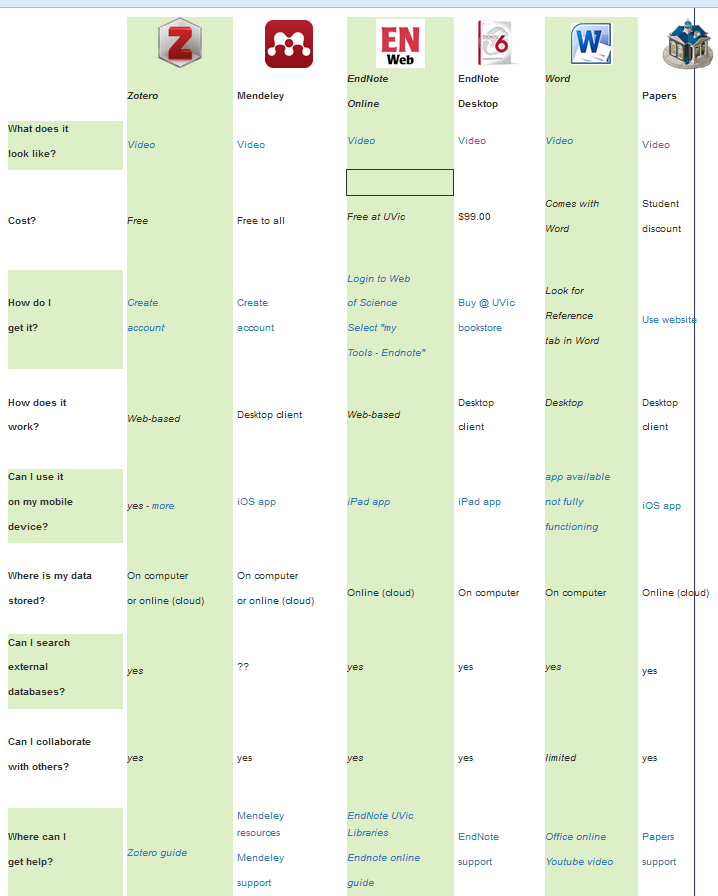
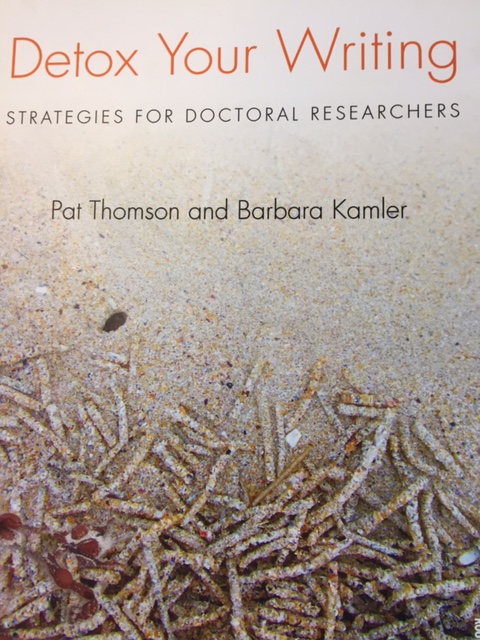 I am a big fan of Thomson and Kamler’s four-move abstract described in Detox Your Writing: Strategies for Doctoral Researchers (
I am a big fan of Thomson and Kamler’s four-move abstract described in Detox Your Writing: Strategies for Doctoral Researchers (
